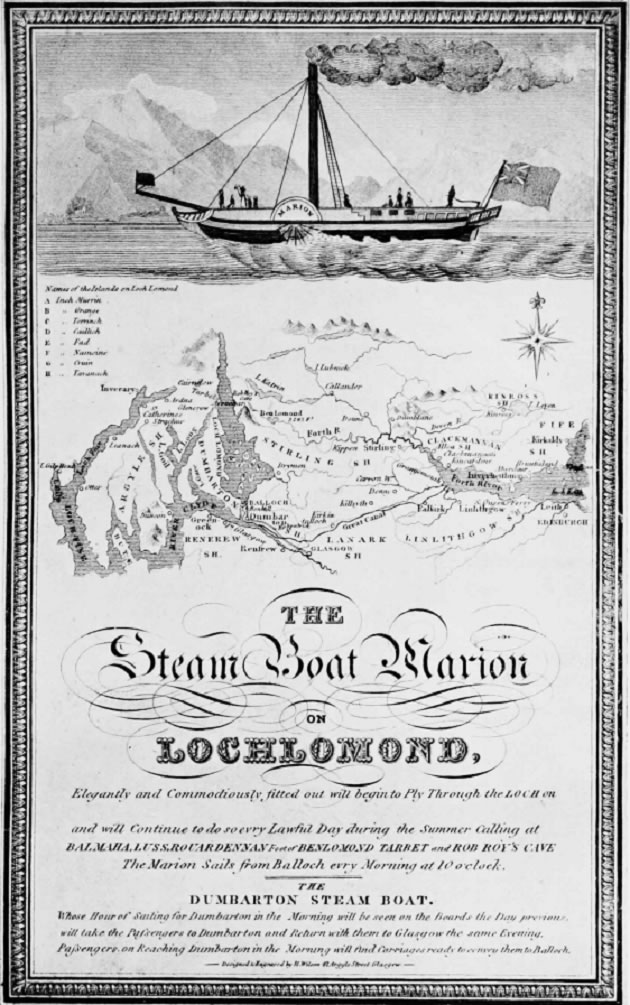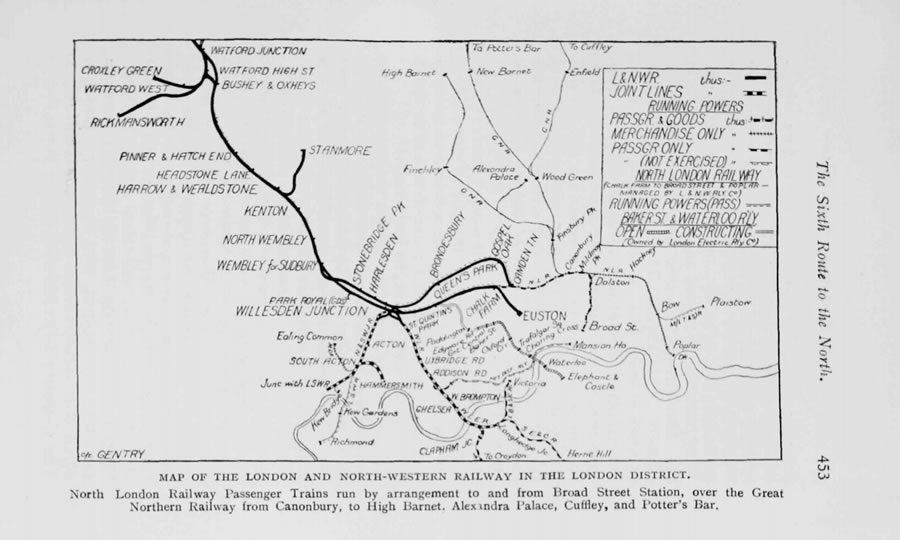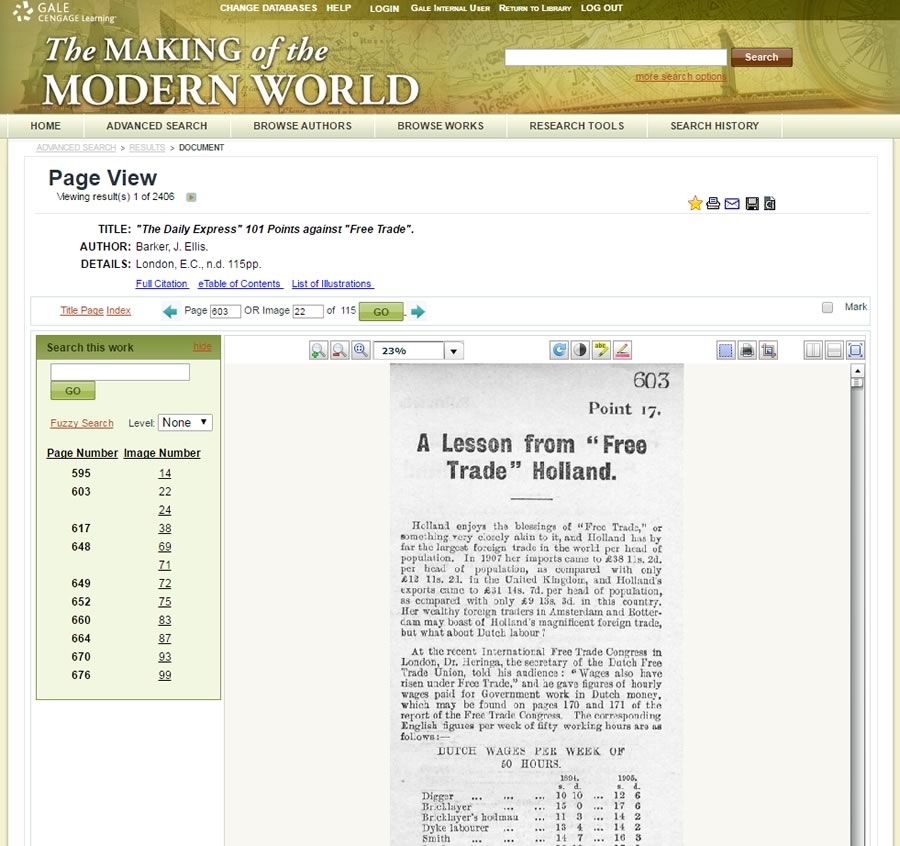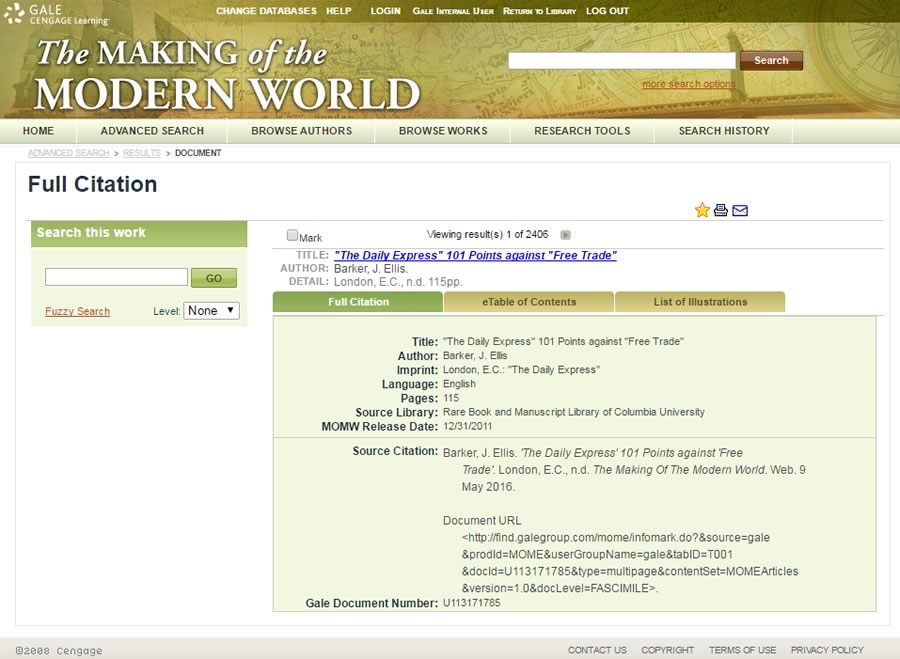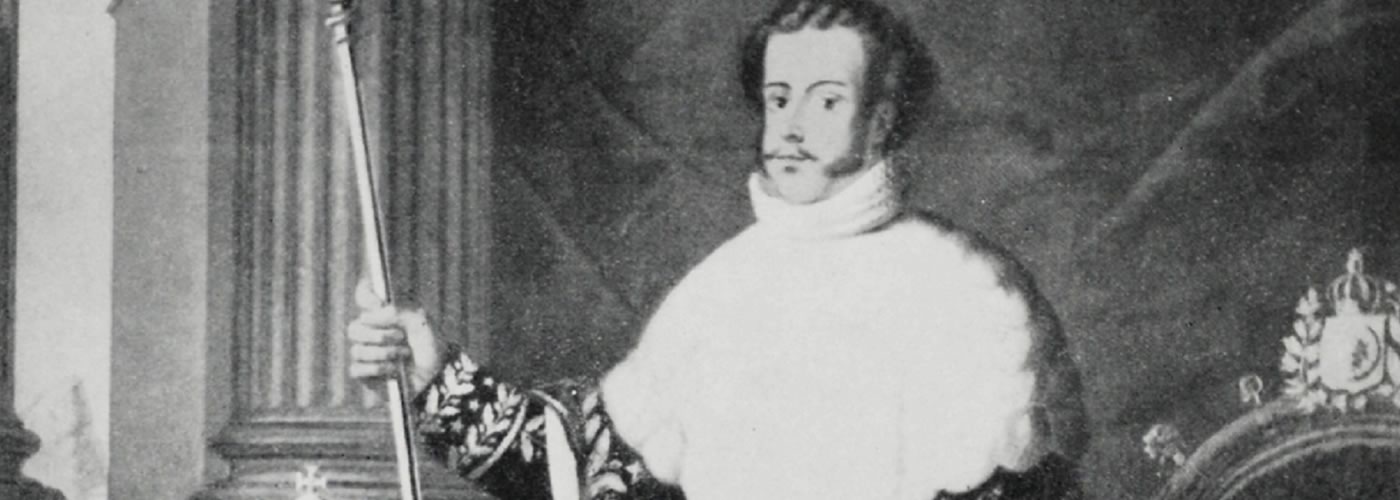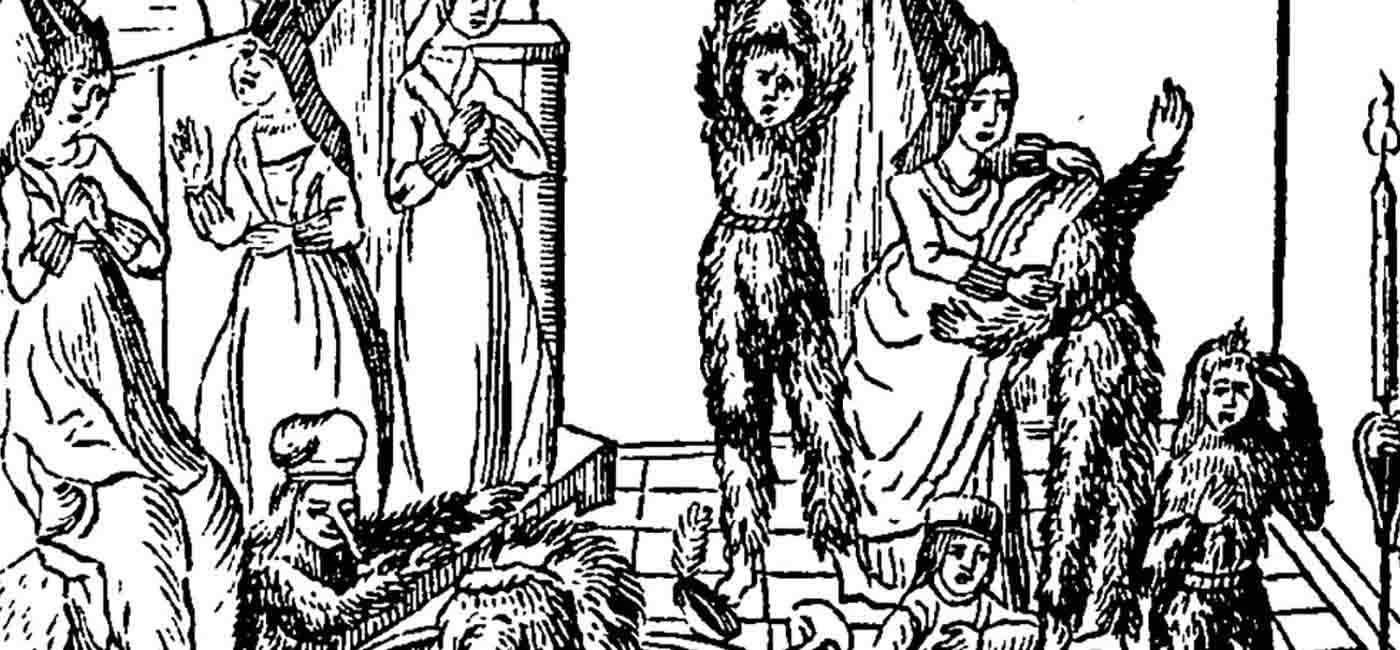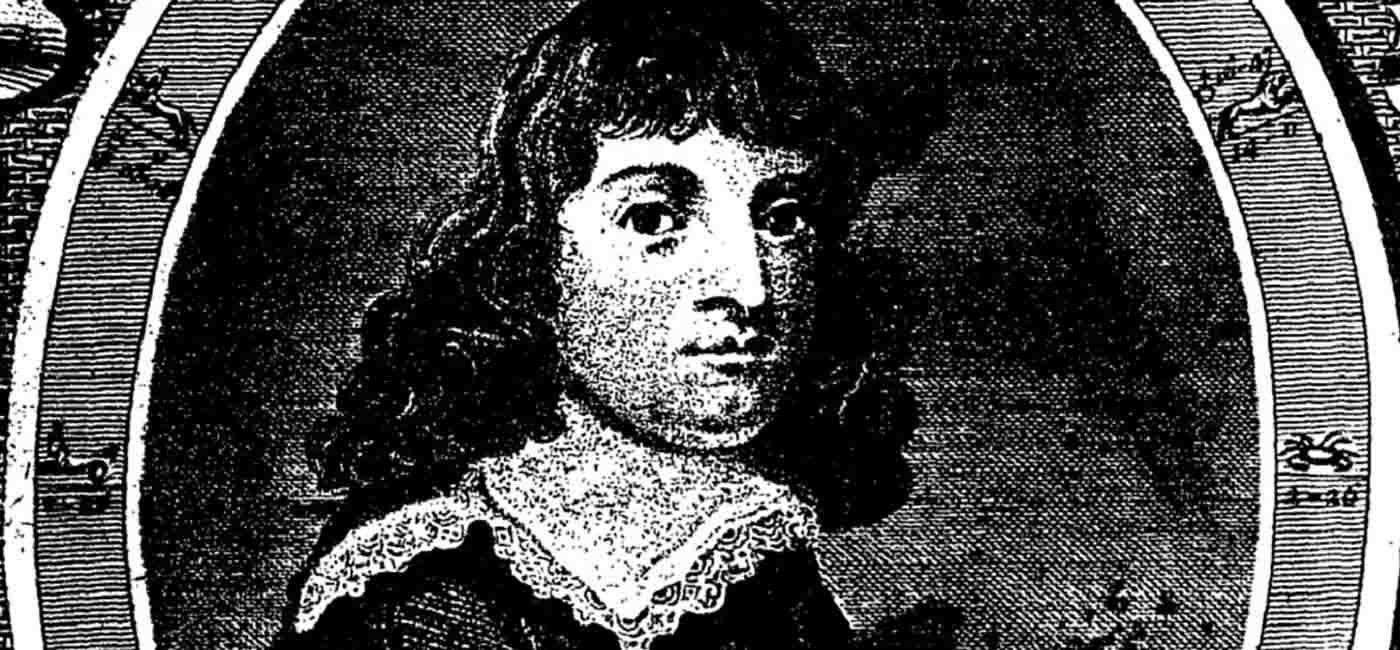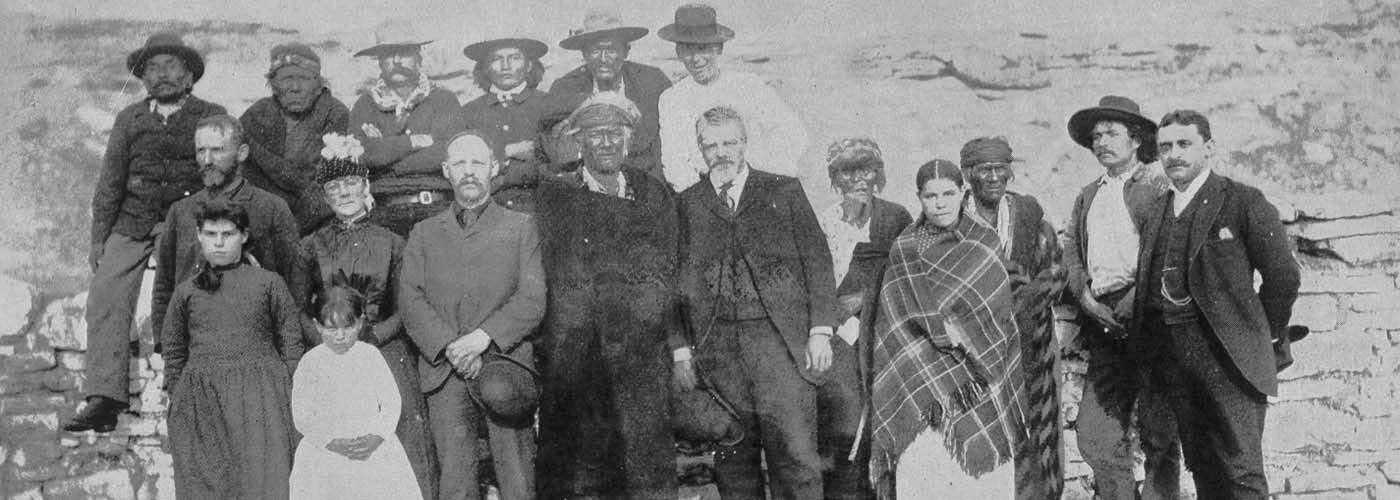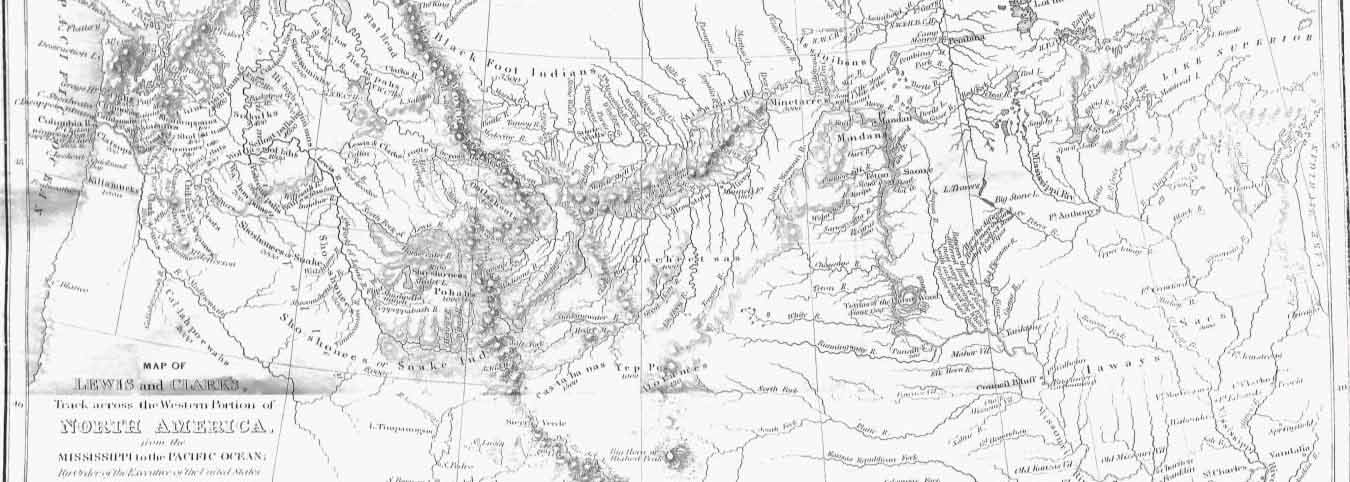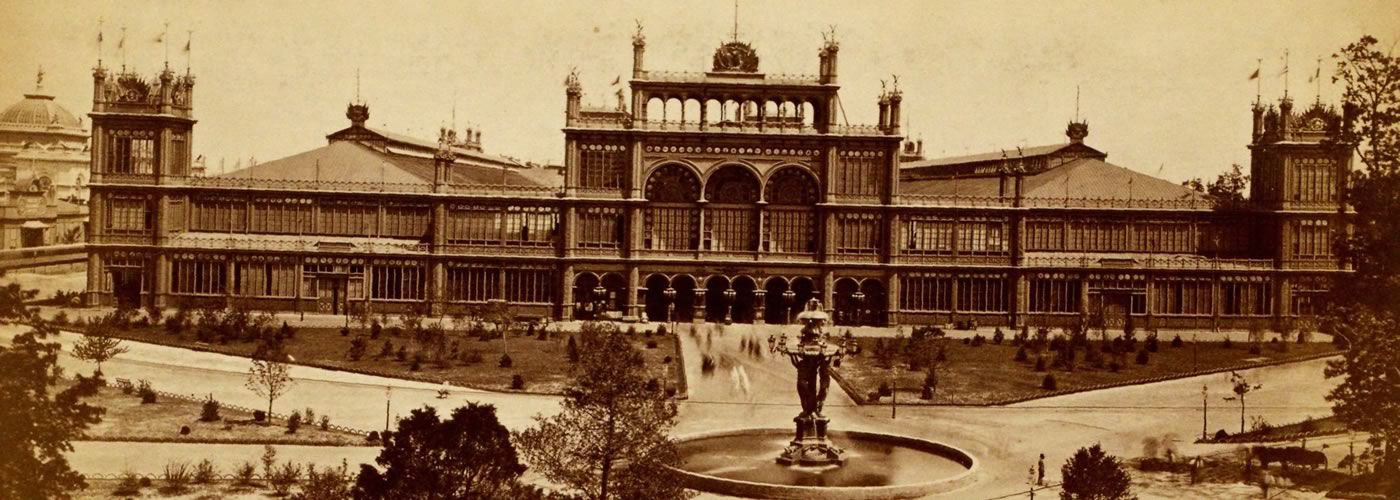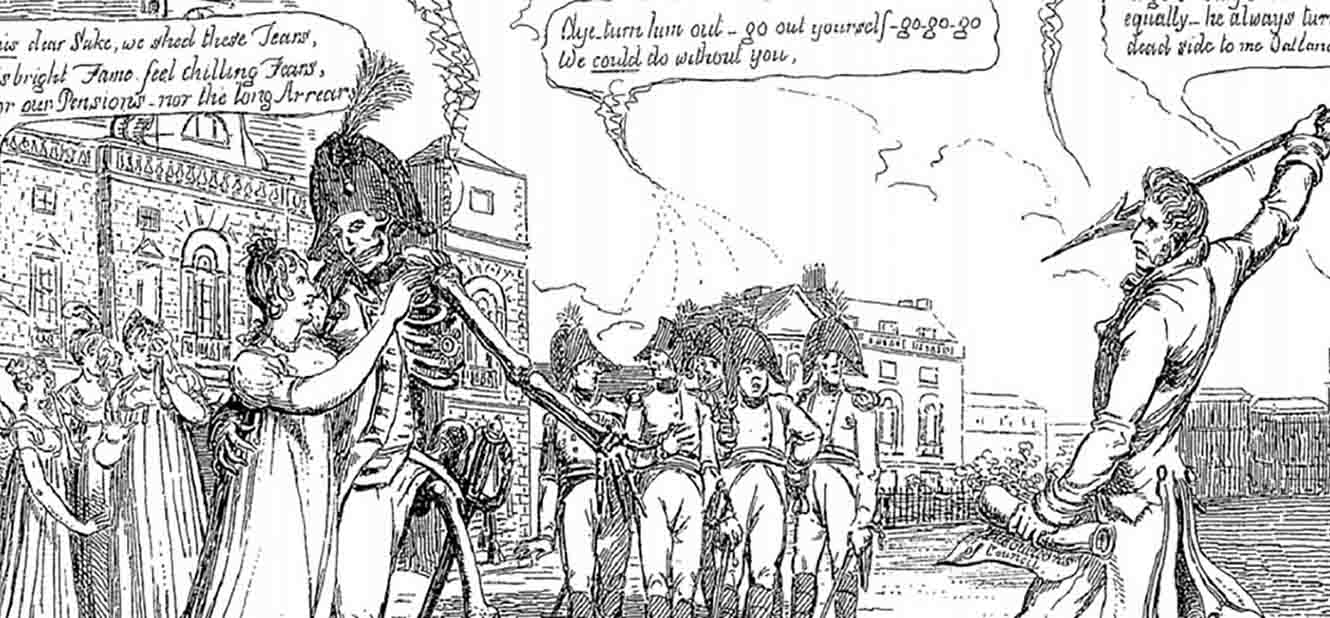Access a wealth of documents on the developments and events from the late nineteenth and early twentieth centuries that shaped today's world.
The Making of the Modern World, Part II: 1851-1914 takes The Making of Modern World series to the end of the nineteenth century. Comprised mainly of monographs, reports, correspondence, speeches, and surveys, this collection broadens Gale's international coverage of social, economic, and business history, as well as political science, technology, industrialization, and the birth of the modern corporation.
The Making of the Modern World, Part II: 1851-1914 traces the progress of the nineteenth century nations' rapidly changing economies. The breadth and depth of the collection makes it an essential resource for historians allowing them to explore a range of material including, but not limited to, local reports, broad overviews, abstract analyses, reports on the financing of railways, economic textbooks, social polemics, and political speeches. Users can mine a wealth of topics ranging from nineteenth-century banking history and economic systems to social reform, debates over currency format, the increased interest in theories of valuation, and the emerging issue of foreign exchange rates.
In page after page of primary source documents, researchers can evaluate the profound impact of the Industrial Revolution on the political and social conditions of nineteenth-century workers, factory owners, and national economies.
An indispensable tool for researching the history of economic thought and analysis, The Making of the Modern World, Part II: 1851-1914 also provides users with exclusive inroads into the general political and philosophical thought of the period. This collection is of particular value to anyone with an interest in nineteenth-century history, political science, philosophy, business/economic law, and women's studies.
Also unique is the large number of translations in the collection, useful to scholars concerned with the evolution of ideas in the history of economics as they flowed from one culture to another. Roughly 50 percent of the collection comprise of rare titles in languages other than English, including French, German, Portuguese, Scandinavian, Italian, and Spanish.
Topics include:
- Products (e.g. cocoa, coffee, tea, cotton, leather, grain)
- Railroads
- Women (in business, the labor movement and women's rights)
- Industry and trade, including the evolution of business enterprises
- Socialism and social movements, including communism
- Political theories, including economic policy
- Economic disaster and recovery
- War and the military
- Colonialism and exploitation of natural resources
- Government regulation and protectionism
- Worker's rights and the evolution of unionism
- Population issues
Scholars will find the writings of well-known writers such as:
- English economist William Stanley Jevons
- Belgian economist Emile de Laveleye
- Italian economist Achille Loria
- American economists Henry Charles Carey and Edwin Seligman
- German economists Franz Oppenheimer, Lujo Brentano, Adolf Wagner, and Eugen von Bohm-Bawerk
- French economist Charles Gide
- French economic journalist Paul Leroy-Beaulieu
- German land reformer Adolf Damaschke
FEATURED REVIEW
“Taken together, MOMW I and MOMW II represent very significant and extensive collections combining standard works in multiple editions and unique primary source materials. The interface is straightforward and easy to use, although it could benefit from having a greater variety of browse functions . . . Another benefit to the MOMW collections will be cross-collection searchability with other Gale collections, including ECCO and especially NCCO, since the publisher will be loading these collections on the ARTEMIS platform.”
- eDesiderata, Center for Research Libraries
Look Inside
Additional Details
subjects covered
- Black Studies
- African Studies
- African-American Studies
- European Studies
- Humanities & Social Sciences
- Latina / Latin America / Caribbean Studies
- Religion & Philosophy
- U.S. History
- American Indian / Native American Studies
Platform Features & Tools
Term Frequency
Researchers can see the frequency of search terms within sets of content to begin identifying central themes and assessing how individuals, places, events, and ideas interact and develop over time.
Topic Finder
By grouping commonly occurring themes, this tool reveals hidden connections within search terms—helping to shape research by integrating diverse content with relevant information.
Cross-Search Capability
Search across the content of complementary primary source products, including books, in one united, intuitive environment, enabling innovative new research connections.
Reviews & Testimonials
“The title The Making of the Modern World (MOMW) stakes a bold claim, as well it should. MOMW will have a broad appeal to a diverse scholarly audience. Summing it up: Highly recommended. Upper-level undergraduates through researchers/faculty.”
“. . . [The two rare book libraries] are comprehensive in their coverage; they contain, in some cases, the only known extant copies of certain works, and they include numerous books of fascinating provenance — books from the personal libraries of such personages as Adam Smith, Lord Sheffield, David Ricardo, John Locke, Jeremy Bentham, William Wilberforce, Robert Owen, Sir Robert Peel, William Wordsworth and Karl Marx.”
One of the great miracles of the internet is that scholars can do full text searches of thousands, actually in this case, of a million pages of key sources. With this latest installment of the University of London’s Goldsmith-Kress collection on economic history, scholars will have easy access to important works from the Gilded Age, when the British empire was so dominant. While the focus of the books in this collection is on economics and trade, these sources are critical for social and intellectual history. Now that Gale has made so much available, from the Making of Modern Law, to the Sabin Americana, and the Nineteenth Century US Newspapers, to the grand and enormous Making of the Modern World, scholars can focus their energies on the critical task of interpreting rather than gather information. Gale’s databases are absolutely foundational to the expansion of knowledge about history, law, and economics from the birth of printing to the twentieth century.


